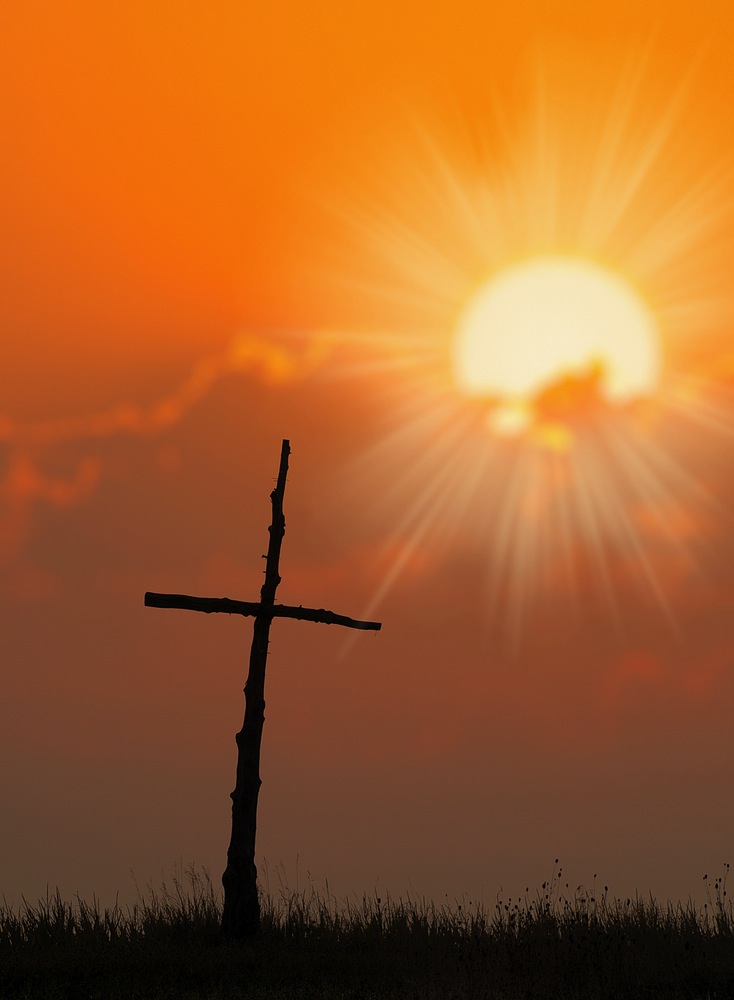The Lord’s Prayer – Why I Can Still Say It

Despite its familiarity and almost constant liturgical use, the Lord’s Prayer has become difficult for even some devout Christians to pray in our day. To be sure, the thought-world of the New Testament is very different from our own. Yet, I have been helped by insights of such biblical scholars as Marcus Borg and John Dominic Crossan to, as it were, get beyond the words and find in this ancient prayer the essence of Jesus’ radical message to his age… and ours.
Our Father in heaven; hallowed by your name…
This first phrase is actually, for me, the most problematical. But, even though the patriarchal form of address carries with it a lot of baggage for some, and the suggestion that God dwells in “heaven” suggests for many a place above the clouds in a three-story universe, the first phrase is balanced for me by the second about the sacred name being holy. For Jesus, the good Jew, the actual “name” of God (YHWH) could not even be pronounced except once each year by the high priest. Whatever title we give to God will be inadequate for God’s true “name” must be forever held in silence in reverence and awe. So, as long as I use other, more inclusive and expansive names for God in my other prayers, I can use the name “Abba” which even Jesus knew was inadequate, but which we believe was his normal way of addressing the Holy One.
Your kingdom come, your will be done; on earth as in heaven…
Again, while many will prefer “reign” or “sovereignty” to “kingdom,” the primary message of Jesus was that God was king and that we are not. Empires are no less prevalent and destructive today than they were in the first century and our longing in this prayer is that, one day, God’s reign and God’s desire will replace what passes for justice and peace in the world today – in this world, on this planet not in an ethereal, spiritual existence somewhere else.
Give us today our daily bread; and forgive us our debts as we forgive our debtors…
While we may delude ourselves into thinking that we “earn” our daily bread, the reality is that all is gift, all is grace. If the earth did not produce our food and if we were not endowed with the strength and wisdom to plant seeds in the earth, harvest the crop, and prepare the meal, there would be no daily bread for anyone. And yet, while we are grateful for those gifts, we are ever mindful that so many – through no fault of their own – do not have adequate food or drink. Therefore, the proper response of gratitude would be “debt forgiveness” – in our personal lives, our national life, and our international relations so that all may receive the gift of daily bread.
Save us from the time of trial; and deliver us from evil…
This notoriously difficult-to-translate phrase speaks of our desire to be spared from the danger, violence, oppression, and degradation which are the fate of too many in a world dominated by selfishness and sin. God will not magically intervene to save us (or else why have so many others not been spared?) but if we honor God’s name, live in the kingdom, and forgive others as we have been forgiven, we can still hope for safety and trust in our Creator.
For the kingdom, the power, and the glory are yours; now and forever. Amen.
The prayer concludes with a doxology borne of Jesus’ own conviction that the reign of God has already begun for those with eyes to see it, and with those same eyes behold the absolute splendor and beauty of the One who has existed for all eternity and will to the ages of ages. So be it.
C. Christopher Epting
Davenport, Iowa
January 12, 2013
